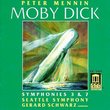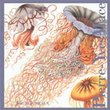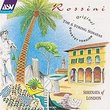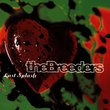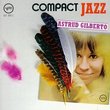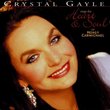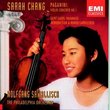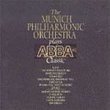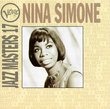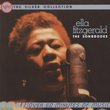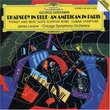| All Artists: Wolfgang Amadeus Mozart, Gerard Schwarz, Mostly Mozart Festival Orchestra Title: Mozart: Clarinet Concerto; Clarinet Quintet Members Wishing: 0 Total Copies: 0 Label: Delos Records Release Date: 12/11/1992 Genre: Classical Styles: Chamber Music, Forms & Genres, Concertos, Historical Periods, Classical (c.1770-1830), Instruments, Reeds & Winds Number of Discs: 1 SwapaCD Credits: 1 UPC: 013491302027 |
Search - Wolfgang Amadeus Mozart, Gerard Schwarz, Mostly Mozart Festival Orchestra :: Mozart: Clarinet Concerto; Clarinet Quintet
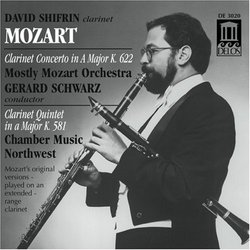 | Wolfgang Amadeus Mozart, Gerard Schwarz, Mostly Mozart Festival Orchestra Mozart: Clarinet Concerto; Clarinet Quintet Genre: Classical
All clarinettists owe an enormous debt of gratitude to 18th-century clarinet virtuoso Anton Stadler (1753-1812); because of his remarkable abilities and his friendship with Mozart, the repertory for the instrument has been... more » |
Larger Image |
CD DetailsSynopsis
Album Description All clarinettists owe an enormous debt of gratitude to 18th-century clarinet virtuoso Anton Stadler (1753-1812); because of his remarkable abilities and his friendship with Mozart, the repertory for the instrument has been infinitely enriched. The clarinetist and the composer began a musical collaboration in 1784 that culminated in Mozart's Clarinet Quintet in 1789 and the Clarinet Concerto in 1791. The Clarinet Concerto was the last major work Mozart was to complete. As Alfred Einstein writes, "the greatness and transcendent beauty of this work are such as its high Köchel number would lead us to expect. One almost has the impression that Mozart felt impelled to express again, in greater and dramatically animated form, what he had already expressed in more lyric form . . . in the Quintet." Mozart surely knew the extent of his final illness while writing this work; it is profoundly personal in tone, a heartbreaking sadness underlying the utter serenity of the music.The manuscripts for both the quintet and concerto had disappeared by the time Constanze Mozart set about having inventories made of her husband's works. When an early edition of the concerto was published by Breitkopf and Härtel in 1802, an anonymous reviewer in the Allgemeine Musikalische Zeitung noted that "Mozart composed this concerto for a clarinet going down to the c " [a range lower than the conventional clarinet]. He pointed out that certain parts had to be transposed and acknowledged the work of the editors "for those transpositions and variations for the usual clarinet." And so, the Mozart Clarinet Concerto became known in a standardized edition which included substantial changes from the composer's original. The question of the extended range - those notes beyond the reach of the standard clarinet in A - remained a mystery.During the late 1940s, scholars in England and Czechoslovakia began a methodical study of the clarinet writing in the concerto, paying careful attention to those passages where ascending or descending scale patterns seem to have been "dislocated." It became apparent that the missing original of Mozart's concerto was intended not for the clarinet as we know it but for an unusual extended-range clarinet which included four notes lower than the standard instrument. Stadler himself was known to own such a specially-adapted instrument, a relative to the then-common basset-horn. In addition, Mozart's own incomplete sketch for the basset-horn concerto, K. 584b, provided a valuable model for how he scored the solo passagework for the lower-range instrument.Armed with this information, several scholars have since published careful, imaginative reconstructions of the original clarinet parts for both the quintet and concerto. The differences are more readily apparent in the concerto, where the revised solo passages often dip down into the instrument's distinctive lower range; in the quintet, the changes are minimal. In the performances recorded here, David Shifrin plays on an extended-range clarinet built for him by the distinguished wind instrument maker Leonard Gullotta. Similar CDs
Similarly Requested CDs
|
CD ReviewsSimply Beautiful kv581 | Durham, NC United States | 01/06/2000 (5 out of 5 stars) "These two works are perhaps the most recorded of all clarinet music. Amidst the competition, what makes the Shifrin version stand out? First of all, Shifrin's choice of the historically correct bassett clarinet (look carefully at the CD cover and you'll see Shifrin holding two clarinets...the slightly longer one is the bassett clarinet) distinquishes this recording from many others. The use of the bassett clarinet (which is actually the instrument for which Mozart wrote the concerto) allows the pieces to be performed "the correct way" (shorter than the bassett clarinet, the modern clarinet can no longer play the lowest notes in the concerto; these unplayable notes are usually moved up an octave for performances). However, the mere use of a "historically correct" instrument does not make this CD special (after all, the use of period instruments is quite popular these days...Sabine Meyer and Anthony Pay have both recorded the Mozart clarinet concerto using the bassett clarinet). Rather, Shifrin's warm and smooth tone is what makes this CD a must-buy. Some may consider his tone to be velvety but weak, but I find it to be highly appropriate in the Mozart setting (instead of a more brilliant tone that many clarinetists are striving for nowadays). Shifrin's playing style is quite conservative (though he does sport a slight vibrato); no radical interpretations should be expected here. This is a great CD for students, professional players, and music lovers alike. While Robert Marcellus's famed recording of the concerto with the Cleveland Orchestra may never be surpassed, David Shifrin comes very, very near. In any case, Marcellus has not recorded the clarinet quintet (either that, or this recording is really hard to find). All the more to purchase the Shifrin CD!" You can't go wrong with these recordings Prescott Cunningham Moore | 05/23/2004 (5 out of 5 stars) "I own several versions of this concerto, arguably Mozart's finest. Soltzman's is absolutely terrible. I have always had an issue with his sound - his tone is harsh, nasal, and not suited to any music that requires delicate phrasing and beauty. David Shifrin, on the other hand, is an absolutely brilliant artist. An artistic director for the New York Philharmonic and director of several music festivals, David Shifrin is a deeply committed musician. And it shows in these sensitive readings of the Mozart concerto and quintet. His tone is absolutely astounding. It's sweet, mellow, and delightful to listen to. He uses an extended-range clarinet as Mozart intended and the result is delightful. This is a wonderful CD and, as a clarinetist, I cannot recommend it more highly." Shifrin is Smooooooth, Master of Legato gllcanon | Houston, TX | 02/20/2001 (5 out of 5 stars) "I picked up this CD during an intermission of a recent David Shifrin Concert with the Tokyo String Quartet at Rice University. Shifrin is as smooth as vanilla ice cream on a hot summer day. While he played Brahm's Concerto this particular day, my favorite is Mozart's K.622, which is exactly what this album features. Shifrin is the Master of Legato -- and his tone isn't so bright like so many others today. I find Emma Johnson and sometimes even Richard Stoltzman a bit too shrill for my ear. I've yet to find a copy of Marcellus' K.622 but I hear it's the best recording of Mozart's Concerto in A. This is a rare CD to find. If you like K.622, this is a must have."
|

 Track Listings (7) - Disc #1
Track Listings (7) - Disc #1

